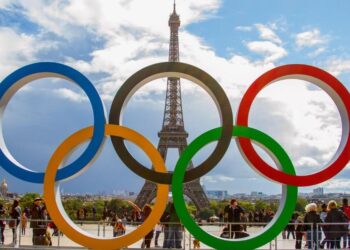
…ends 27-year dispute with Greece over name
By Bartholomew Madukwe with Agency report
The 27-year stalemate between Greece and Macedonia over the latter’s name since its independence in 1991 has finally ended as the country is now officially called the Republic of Northern Macedonia.
The name dispute has soured relations between the two neighbors at least since 1991, when Macedonia broke away from former Yugoslavia, declaring its independence under the name Republic of Macedonia.
Macedonian Prime Minister, Zoran Zaev, said the deal would open the way for the tiny Balkan nation’s eventual membership of the European Union and NATO, currently blocked by Greece’s objections to its use of the name Macedonia, reports Reuters.
SOBRIETY
Many Greeks felt their northern neighbor (Republic of Northern Macedonia) was trying to hijack Greece’s ancient cultural heritage. Macedonia is the birthplace of Alexander the Great.
U.S. CONGRATULATES BOTH COUNTRIES
United States has congratulated the Prime Ministers of Greece and Republic of Northern Macedonia. In a twitter message, the United States said it welcomed the historic agreement on Macedonia name issue.
“We stand ready to support this agreement, as requested by the two countries,” United States stated.
FACTICITY OF MACEDONIA
Republic of Northern Macedonia is a country in the Balkan peninsula in Southeast Europe. It is one of the successor states of the former Yugoslavia, from which it declared independence in 1991.
It became a member of the United Nations in 1993, but, as a result of an ongoing dispute with Greece over the use of the name “Macedonia”, was admitted under the provisional description the former Yugoslav Republic of Macedonia (sometimes abbreviated as FYROM and FYR Macedonia), a term that is also used by international organizations such as the European Union, the Council of Europe, and NATO.
On 12 June 2018, the Macedonian and Greek governments reached a preliminary agreement to end their dispute, which would result in Macedonia being renamed the Republic of North Macedonia.
A landlocked country, the Republic of Macedonia has borders with Kosovo[a]to the northwest, Serbia to the north, Bulgaria to the east, Greece to the south, and Albania to the west. It constitutes approximately the northwestern third of the larger geographical region of Macedonia, which also comprises the neighbouring parts of northern Greece and smaller portions of southwestern Bulgaria and southeastern Albania.
The country’s geography is defined primarily by mountains, valleys, and rivers. The capital and largest city, Skopje, is home to roughly a quarter of the nation’s 2.06 million inhabitants. The majority of the residents are ethnic Macedonians, a South Slavic people. Albanians form a significant minority at around 25 percent, followed by Turks, Romani, Serbs, and others.
This region’s history dates back to antiquity, beginning with the kingdom of Paeonia, probably a mixed Thraco-Illyrian polity.
In the late sixth century BC, the area was incorporated into the Persian Achaemenid Empire, then annexed by the Kingdom of Macedoniain the fourth century BC. The Romans conquered the region in the second century BC and made it part of the much larger province of Macedonia. Τhe area remained part of the Byzantine (Eastern Roman) Empire, and was often raided and settled by Slavic peoples beginning in the sixth century of the Christian era. Following centuries of contention between the Bulgarian, Byzantine and Serbian empires, it gradually came under Ottoman dominion from the 14th century.
Between the late 19th and early 20th century, a distinct Macedonian identity emerged, although following the Balkan Wars of 1912 and 1913, the modern territory of Macedonia came under Serbian rule.
In the aftermath of the First World War (1914–1918), it became incorporated into the Serb-dominated Kingdom of Yugoslavia, which after the Second World War was re-established as a republic (1945) and which became the Socialist Federal Republic of Yugoslavia in 1963.
Macedonia remained a constituent socialist republic within Yugoslavia until its peaceful secession in 1991 and is a member of the UN and of the Council of Europe. Since 2005 it has also been a candidate for joining the European Union and has applied for NATO membership. Although one of the poorest countries in Europe, Macedonia has made significant progress in developing an open, market-based economy.





